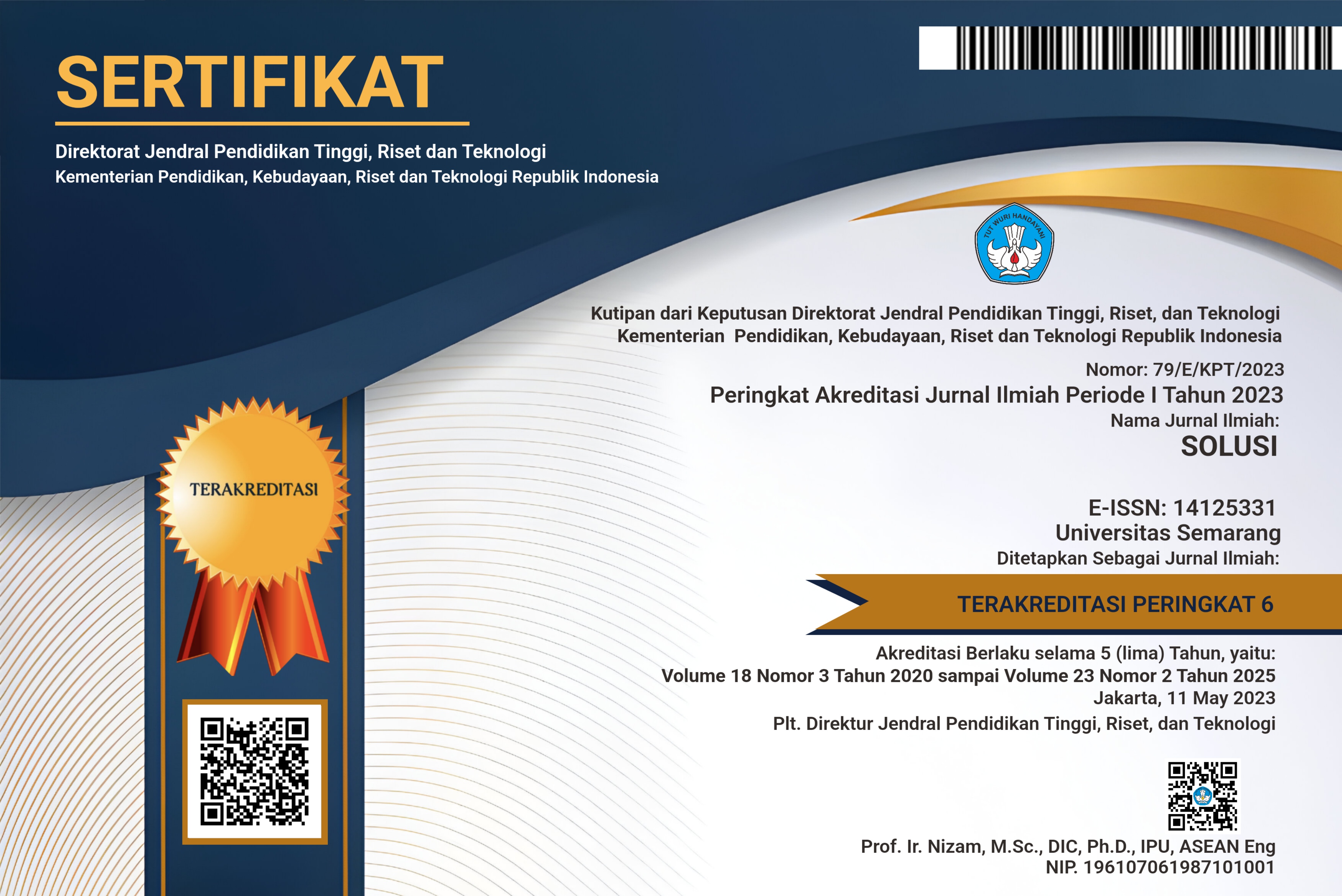Membangun Kapasitas Personel Ditpamobvit melalui Pengembangan Kompetensi dan Kolaborasi Lintas Fungsi
Abstract
Keywords
Full Text:
PDFReferences
Agustina, S., Darma, W. A., Fajar, V. F., Maulana, I. D., & Putra, M. F. P. (2023). Kinerja Anggota Kepolisian Pada Direktorat Reserse Kriminal Umum (Ditreskrimum) Melalui 13 Komponen Penilaian Di Kepolisian Daerah Sumatera Selatan. Jurnal Ilmu Administrasi Dan Studi Kebijakan (JIASK), 5(2), 151–170. https://doi.org/10.48093/jiask.v5i2.135
Bucher Sandbakk, S., Walther, J., Solli, G. S., Tønnessen, E., & Haugen, T. (2023). Training Quality-What Is It and How Can We Improve It? International Journal of Sports Physiology and Performance, 18(5), 557–560. https://doi.org/10.1123/ijspp.2022-0484
Clemente, F., de Sousa, L., Rego, R., & Calca, P. (2024). Why are individuals unwilling to report corruption? An inquiry into perception-based definitions of corruption and employment-related factors. Australian Journal of Public Administration, 83(4), 625–646. https://doi.org/https://doi.org/10.1111/1467-8500.12617
Cooper, D. R., & Emory, W. (1995). Business research methods (5th ed.). Irwin.
D’Souza, D. E., Bement, D., & Cory, K. (2022). Cross-functional integration skills: Are business schools delivering what organizations need? Decision Sciences Journal of Innovative Education, 20(3), 117–130. https://doi.org/https://doi.org/10.1111/dsji.12262
Dessler, G., Cole, N. D., & Chhinzer, N. (2015). Management of human resources: The essentials. Pearson London.
Fachrial, P., & Agustina, L. (2022). The Influence of Cross-Functional Marketing Capabilities on Marketing Ambidexterity. Syntax Literate: Jurnal Ilmiah Indonesia, 9(2), 356–363.
Foerstl, K., Hartmann, E., Wynstra, F., & Moser, R. (2013). Cross-functional integration and functional coordination in purchasing and supply management: Antecedents and effects on purchasing and firm performance. International Journal of Operations and Production Management, 33(6), 689–721. https://doi.org/10.1108/IJOPM-09-2011-0349
Franklin, A. S., Perkins, R. K., Kirby, M. D., & Richmond, K. P. (2019). The Influence of Police Related Media, Victimization, and Satisfaction on African American College Students’ Perceptions of Police. Frontiers in Sociology, 4(September), 1–10. https://doi.org/10.3389/fsoc.2019.00065
Ghozali, I., & Latan, H. (2015). Partial Least Squares, konsep, teknik dan aplikasi menggunakan program Smartpls 3.0 untuk penelitian empiris. Badan Penerbit Universitas Diponegoro.
Hair, J. F., Risher, J. J., Sarstedt, M., & Ringle, C. M. (2019). When to use and how to report the results of PLS-SEM. European Business Review, 31(1), 2–24. https://doi.org/10.1108/EBR-11-2018-0203
Handoko, T. H. (2012). Manajemen Personalia Dan Sumber Daya Manusia, Edisi Ketiga. BPFE Yogyakarta.
Hasibuan, M. S. P. (2017). Manajemen Sumber Daya Manusia. Bumi Aksara. https://books.google.co.id/books?id=ZQk0tAEACAAJ
He, C., Hu, Z., Shen, Y., & Wu, C. (2023). Effects of Demographic Characteristics on Safety Climate and Construction Worker Safety Behavior. Sustainability (Switzerland), 15(14), 1–20. https://doi.org/10.3390/su151410985
Jeske, D., & Calvard, T. S. (2021). A review of the literature on cross-functional integration (2010–2020): trends and recommendations. International Journal of Organizational Analysis, 29(2), 401–414. https://doi.org/10.1108/IJOA-04-2020-2144
Kadarisman, M. (2012). Manajemen pengembangan sumber daya manusia. Rajawali Pers.
Laing, I. F. (2021). THE IMPACT OF TRAINING AND DEVELOPMENT ON WORKER PERFORMANCE AND PRODUCTIVITY IN PUBLIC SECTOR ORGANIZATIONS: A CASE STUDY OF GHANA PORTS AND HARBOURS AUTHORITY. International Research Journal Of Business and Strategic Management, 75(17), 399–405. www.irjp.org
Mayatinasari, V., Earlyanti, N. I., & Syarifudin. (2019). Strategi Pengelolaan Kinerja untuk Mewujudkan Polri Promoter. Jurnal Ilmu Kepolisian, 13(2), 9. https://doi.org/10.35879/jik.v13i2.161
Mehner, L., Rothenbusch, S., & Kauffeld, S. (2024). How to maximize the impact of workplace training: a mixed-method analysis of social support, training transfer and knowledge sharing. European Journal of Work and Organizational Psychology, 00(00), 1–17. https://doi.org/10.1080/1359432X.2024.2319082
Millar, P., & Stevens, J. (2021). An Analysis of Training-Related Outcomes Within Canadian National Sport Organizations. Journal of Sport Management, 35(2), 185–196. https://doi.org/10.1123/jsm.2020-0016
Napitupulu, R. H. M. (2020). The Relationship Between Education, Training, and Civil Servant Lecturers Competency. Journal of Business Management Review, 1(2), 121–132. https://doi.org/10.47153/jbmr12.202020
Nguyen, C., & Duong, A. (2021). The Impact of Training and Development, Job Satisfaction and Job Performance on Young Employee Retention. SSRN Electronic Journal, May. https://doi.org/10.2139/ssrn.3906100
Pellathy, D. A., Mollenkopf, D. A., Stank, T. P., & Autry, C. W. (2019). Cross-Functional Integration: Concept Clarification and Scale Development. Journal of Business Logistics, 40(2), 81–104. https://doi.org/https://doi.org/10.1111/jbl.12206
Prayoga, A., & Nursari, S. C. (2020). Evaluasi Kinerja Kepolisian Berdasarkan Kriteria Pengguna Menggunakan Metode Smart (Studi Kasus Polsek Makasar Jakarta Timur). Journal of Informatics and Advanced Computing, 1(1). https://journal.univpancasila.ac.id/index.php/jiac/article/view/1398/891
Ramli, Lantara, N. L., & Arif, M. (2023). Improving the Performance of Brimob Personnel: The Role of Reward, Training, and Professionalism. Advances: Journal Ekonomi & Bisnis, 1(3), 131–137.
Ringle, C. M., Sarstedt, M., Sinkovics, N., & Sinkovics, R. R. (2023). A perspective on using partial least squares structural equation modelling in data articles. Data in Brief, 48. https://doi.org/10.1016/j.dib.2023.109074
Rizqul Anis, I Made Bayu Dirgantara, & Meirani Harsasi. (2022). Pengaruh Kecerdasan Emosional Dan Lingkungan Kerja Terhadap Kinerja Anggota Kepolisian Dengan Mediasi Komitmen Organisasi. EDUKASIA: Jurnal Pendidikan Dan Pembelajaran, 3(3), 1011–1022. https://doi.org/10.62775/edukasia.v3i3.226
Robbins, S. P., Bergman, R., Stagg, I., & Coulter, M. (2014). Management. Pearson Australia.
Robbins, S. P., Judge, T. A., Mondy, R. W., & Martocchio, J. J. (2018). Human Resource Management & Organisational Behaviour 1: Compiled From: Organizational Behavior (Global Edi). Pearson.
Sedarmayanti, P. (2007). Manajemen Sumber Daya Manusia. PT. Bumi Aksara.
Setiawan, Y. E., & Syaifuddin, S. (2020). Peningkatan Kompetensi Profesionalitas Guru Melalui Pelatihan Desain Pembelajaran Peta Konsep. Jurnal Pengabdian Kepada Masyarakat, 26(3), 148. https://doi.org/10.24114/jpkm.v26i3.16377
Singarimbun, M., & Effendi, S. (1995). Metode penelitian survei. LPPPES.
Sloan, J. J., & Paoline, E. A. (2021). “They Need More Training!” A National Level Analysis of Police Academy Basic Training Priorities. Police Quarterly, 24(4), 486–518. https://doi.org/10.1177/10986111211013311
Sokolowski, D. (2021). Deployment coordination for cross-functional DevOps teams. Proceedings of the 29th ACM Joint Meeting on European Software Engineering Conference and Symposium on the Foundations of Software Engineering, 1630–1634. https://doi.org/10.1145/3468264.3473101
Sypion, N., Kołodziej, A., Leitner, M., & Dutkowski, M. (2024). Gendered perceptions and socio-economic and spatial determinants of fear of crime: an empirical analysis in Szczecin, Poland. Bulletin of Geography. Socio-Economic Series, 63(63), 99–119. https://doi.org/10.12775/bgss-2024-0008
Utami, P. S. (2017). Model Kompetensi Profesional Dan Employee Engagement Terhadap Kinerja Sdm Di Satuan Reserse Polres Jepara Dengan Efek Moderasi Koordinasi Lintas Fungsi. Universitas Islam Sultan Agung.
Wardany, D. K. (2020). Kontribusi Kepemimpinan dan Kompetensi Profesional Terhadap Kinerja Guru. Jurnal Madinasika Manajemen Dan Keguruan, 1(2), 73–82.
Wulan, D. O., Wismaningtyas, T. A., Damayanti, A., & Larasati, A. (2022). Analisis Kualitas Pelayanan Publik Di Kepolisian Resor (Polres) Magelang Kota. Jurnal Ilmiah Untuk Mewujudkan Masyarakat Madani, 134(2), 134–138. http://ojs.stiami.ac.id
Zakaria, N. B., Nordin, M. F., Ismail, A., Ahmad Shukri, N. H., & Baykal, E. (2023). Demographic, experience, and organisational factors effect on local enforcement officers’ ethical integrity. International Journal of Ethics and Systems, ahead-of-print(ahead-of-print). https://doi.org/10.1108/IJOES-12-2022-0303
DOI: http://dx.doi.org/10.26623/slsi.v23i1.11162
Refbacks
- There are currently no refbacks.
Copyright (c) 2025 Yuni Nurul Fitriatiningsih, Budhi Cahyono

This work is licensed under a Creative Commons Attribution 4.0 International License.
SOLUSI Published by : Fakultas Ekonomi , Universitas Semarang Soekarno Hatta Street, Tlogosari Kulon, Pedurungan Semarang City, Central Java - Indonesia P-ISSN : 1412-5331 E-ISSN : 2716-2532 Email : solusi@usm.ac.id |  |












